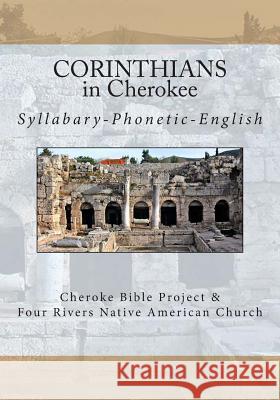Corinthians in Cherokee » książka
Corinthians in Cherokee
ISBN-13: 9781502905499 / Angielski / Miękka / 2014 / 234 str.
Canon and traditional sources tell us that St. Paul wrote four letters to the new church in Corinth, an important crossroads city in Greece. These two survive. Where differences in observance of dietary rules, Paul urged everyone to follow their own consciences, with the condition that each person should have respect for the conscience of the person who does not agree with him and refrain from needlessly offending another. The Early Christian churches marked the events of Jesus' death and resurrection by sharing a common meal together. Some Corinthians failed to see the significance of this meal and made it an occasion for feasting. Paul explains that the purpose of this meal is not for the enjoyment of eating and drinking together but rather for a renewed dedication to the spirit made manifest in the life, death, and resurrection of Jesus. This is a companion to the Cherokee syllabary-only New Testament digitized and released in 2013. Translated into Cherokee in the nineteenth century under the direction of Revs. Samuel Worcester and Elias Boudinot, the Cherokee New Testament is the largest complex text composed in Cherokee by fluent speakers with command of a high level of the language. For generations, the New Testament has been used by Cherokees of all persuasions to learn to speak and write as their ancestors did.
Zawartość książki może nie spełniać oczekiwań – reklamacje nie obejmują treści, która mogła nie być redakcyjnie ani merytorycznie opracowana.











